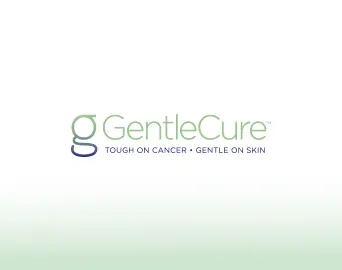Skin cancer is a prevalent and often challenging diagnosis that affects millions of people worldwide. Coping with the physical, emotional, and psychological impact of skin cancer can be daunting, but with the right support and resources, individuals can navigate through this journey with resilience and strength. Below, we’ll explore various coping strategies and support systems available for those living with skin cancer. Discover effective mechanisms for coping with skin cancer, as well as skin cancer support information below.
Understanding Skin Cancer
Skin cancer is the abnormal growth of skin cells, typically caused by prolonged exposure to ultraviolet (UV) radiation from the sun or tanning beds. It manifests in different forms, including basal cell skin cancer, squamous cell skin cancer, and melanoma — each with its own characteristics and treatment approaches.
Coping with Skin Cancer
Receiving a cancer diagnosis can evoke a myriad of emotions that are unique to the individual. Initially, you might experience shock and distress, grappling with the sudden realization of the diagnosis. Alongside these emotions, you may also find yourself:
- Feeling Numb: The news may leave you feeling emotionally numb, as if you’re disconnected from the reality of the situation.
- Frightened and Uncertain: Fear and uncertainty about the future may loom large as you grapple with the unknowns of treatment outcomes and prognosis.
- Confused: The complexity of cancer and its implications can lead to feelings of confusion as you navigate through medical jargon and treatment options.
- Angry and Resentful: Anger and resentment may surface, directed towards the unfairness of the situation or oneself, questioning why this has happened.
- Guilty: Some individuals may wrestle with feelings of guilt, wondering if they could have done anything differently to prevent the diagnosis.
It’s important to recognize that these feelings are a natural part of the journey of coming to terms with cancer. They may fluctuate in intensity and frequency, and it’s normal to experience a range of emotions as you process the diagnosis and its implications. Everyone copes in their own way, and there’s no right or wrong way to feel. It’s also important to remember that cancer doesn’t impact everyone the same way, with some groups more negatively affected than others.
Remember, you’re not alone in your feelings. Many others have walked a similar path, and there are numerous skin cancer resources and skin cancer support networks available to provide guidance, comfort, and understanding along the way. As you journey through the ups and downs of coping with cancer, know that it’s okay to feel whatever emotions arise, and that healing often begins with allowing yourself to acknowledge and process those feelings.
Coping Strategies
- Educate Yourself: Knowledge is empowering. Understanding your diagnosis, treatment options, and prognosis can help alleviate fear and uncertainty. Consult reputable sources, such as the American Cancer Society or Mayo Clinic, for reliable information.
- Seek Support: You don’t have to face skin cancer alone. Reach out to family, friends, or support groups for emotional support. Connecting with others who have gone through similar experiences can provide empathy, advice, and encouragement.
- Practice Self-Care: Prioritize self-care to nurture your physical and mental well-being. Maintain a healthy lifestyle with balanced nutrition, regular exercise, and adequate sleep. Engage in activities that bring you joy and relaxation, whether it’s meditation, hobbies, or spending time in nature.
- Communicate with Your Healthcare Team: Establish open communication with your healthcare providers. Voice any concerns or questions you may have regarding your treatment plan, side effects, or emotional struggles. They can offer guidance, adjustments to your care plan, or referrals to supportive services like counseling or palliative care.
- Manage Stress: Coping with skin cancer can induce stress and anxiety. Practice stress-reduction techniques such as deep breathing exercises, mindfulness, or yoga. Consider seeking professional counseling or therapy to address emotional challenges and develop coping strategies.
Support Resources
- Cancer Support Organizations: Organizations like the Skin Cancer Foundation or Cancer Support Community offer a wealth of skin cancer resources, including educational materials, support groups, and online forums where individuals can connect with peers and access valuable information.
- Online Communities: Virtual platforms, such as Reddit’s r/skincancer or Inspire’s Skin Cancer Support Community, provide safe spaces for individuals to share experiences, ask questions, and offer support in real time.
- Psychosocial Support Programs: Many cancer centers provide psychosocial support programs tailored to address the emotional and psychological needs of patients and their families. These programs may include counseling, support groups, art therapy, or relaxation sessions.
- Financial Assistance: Dealing with the financial burden of cancer treatment can add stress to an already challenging situation. Explore skin cancer resources offered by cancer organizations or government agencies for financial assistance, insurance guidance, or access to prescription assistance programs.
Find More Information at GentleCure™
Living with skin cancer presents unique challenges, but with the right coping strategies and support systems in place, individuals can navigate this journey with resilience and hope. Remember, you are not alone. Reach out for support, prioritize self-care, and empower yourself with the knowledge to face skin cancer with courage and determination.GentleCure can help take some of the fear out of the process by working with you to make sure that you’re getting the best treatments available for your skin cancer with Image-Guided SRT. Our team is here to help you beat cancer, with noninvasive means designed to not disrupt your life. View our patient stories as well, for additional testimony to the efficacy of Image-Guided SRT.
